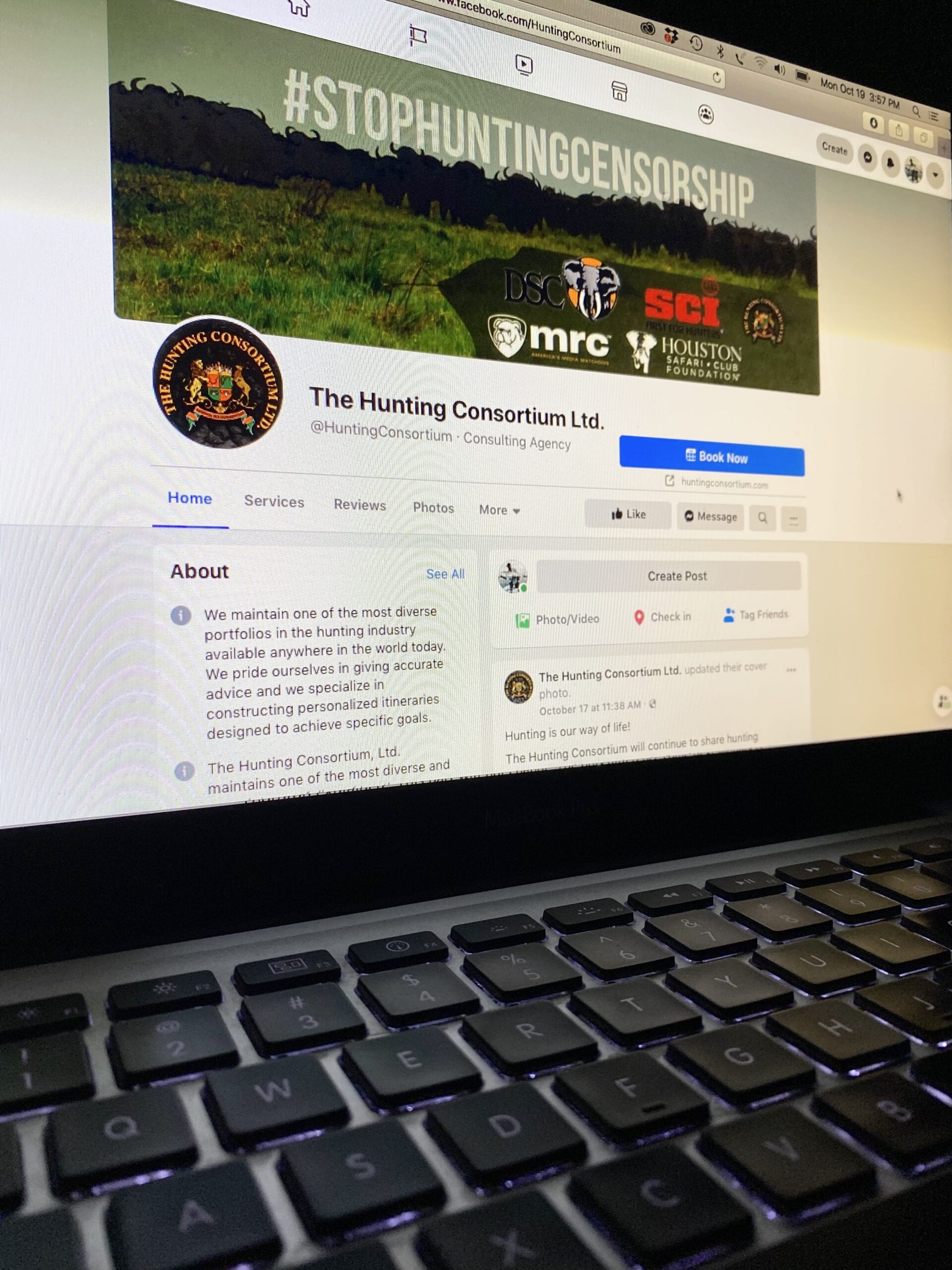Story by Craig Nyhus, Lone Star Outdoor News
Copyright 2020 Lone Star Outdoor News . All rights reserved. This material may not be published, broadcast, rewritten or redistributed.
Censorship of hunting-related content on social media is becoming more common. Scrolling through your feed you might find a post from a hunter, guide or outfitter had a photo attached, but the photo is missing, replaced by a message identifying it as “inappropriate content.”
For The Hunting Consortium, one of the world’s largest international hunting outfitters, the attack and online censorship from social media giants Facebook and Instagram since July are getting more severe.
“The Hunting Consortium has recently fallen victim to the censorship issue that has been plaguing the hunting community for some time now,” said Vice President Rob Kern. “In July, we experienced a censorship issue greater than anything we, or any of the experts we have talked to, have encountered.”
According to Kern, between 1,000 and 1,500 photos were removed from the agency’s Facebook page. But that wasn’t all. Links to the agency’s website were banned on both sites, including on Instagram direct message and Facebook messenger. The Hunting Consortium also cannot write text in an Instagram post, and any message on Instagram containing its website is blocked.
“We have suffered a devastating blow with this censorship and have been in touch daily with some of the biggest hunting organizations and advocacy groups in the world,” said Kern. “We will not take this lying down and will fight to have Facebook and Instagram remove the censorship of our page.”
Kern continued, “Although we do see posts within the hunting community that could be considered sensitive, it is not fair, ethical, or moral that a social media user can witness a human being violently assaulted or even murdered, yet hunting related content is removed.”
Facebook has refused to respond. In the past, in response to another hunting post censorship, it said: “We remove reported content that promotes poaching of endangered species, the sale of animals for organized fight or content that includes extreme acts of animal abuse.”
However, no one has contended The Hunting Consortium posts or photos contained information that promoted poaching, endangered species or any of the other Facebook prohibited content.
Safari Club International, after attempt- ing to contact Facebook since July, wrote Facebook Chief Executive Officer Mark Zuckerberg on Oct. 7, calling for Facebook and Instagram to immediately halt the company’s deliberate and ongoing censorship of The Hunting Consortium Inc.
“Furthermore, conflating illegal poaching with legal hunting is a dangerous tactic that undermines the wildlife conservation benefits brought by legal hunting as recognized by the International Union for the Conservation of Nature (IUCN), Convention on International Trade in Endangered Species of Wild Fauna and Flora (CITES), and many other global and state specific conservation groups,” the letter said.
The Hunting Consortium’s dilemma reminds companies and marketers not to put too many eggs in the Facebook/Instagram basket.
No matter how big a person’s or company’s following is, they don’t own it or have any control of what happens on the platform.
“We use it, but we don’t control it,” said Kevin Rank, an information technology management and marketing professional. “Social media is owned by the companies that run them. We rent space on them.”
The reach of a particular social media post has decreased over the years, often to less than 5 percent of “followers.” To increase the reach, businesses have to spend money on boosting the posts. And paying for eyeballs on posts doesn’t necessarily translate into customers.
“If you depend too much on them and they change their algorithms, you can be completely out of luck,” Rank said. Kern said as of Oct. 16, The Hunting Consortium has received no response from Facebook or Instagram.
“They did bring back some of our posts, but they still can’t be shared and links to our website are still banned,” he said.
Kern is relying on email lists and other marketing and advertising avenues.
“But we lose that collaboration with our clients,” he said. “Now is the time to reach people and say everything is OK.”
Kern said he is all for restricting inappropriate posts, including some posted by hunters.
“There is inappropriate stuff that should be dealt with,” he said. “But in Facebook’s community standards, hunting is accepted.”
The complete lack of responce frustrates Kern.
We haven’t gotten anything from them,” he said. “There is no appeal option. We have used that with success on some ads that were initially denied. One employee there can ban you and it seems like there’s nothing you can do about it.”


